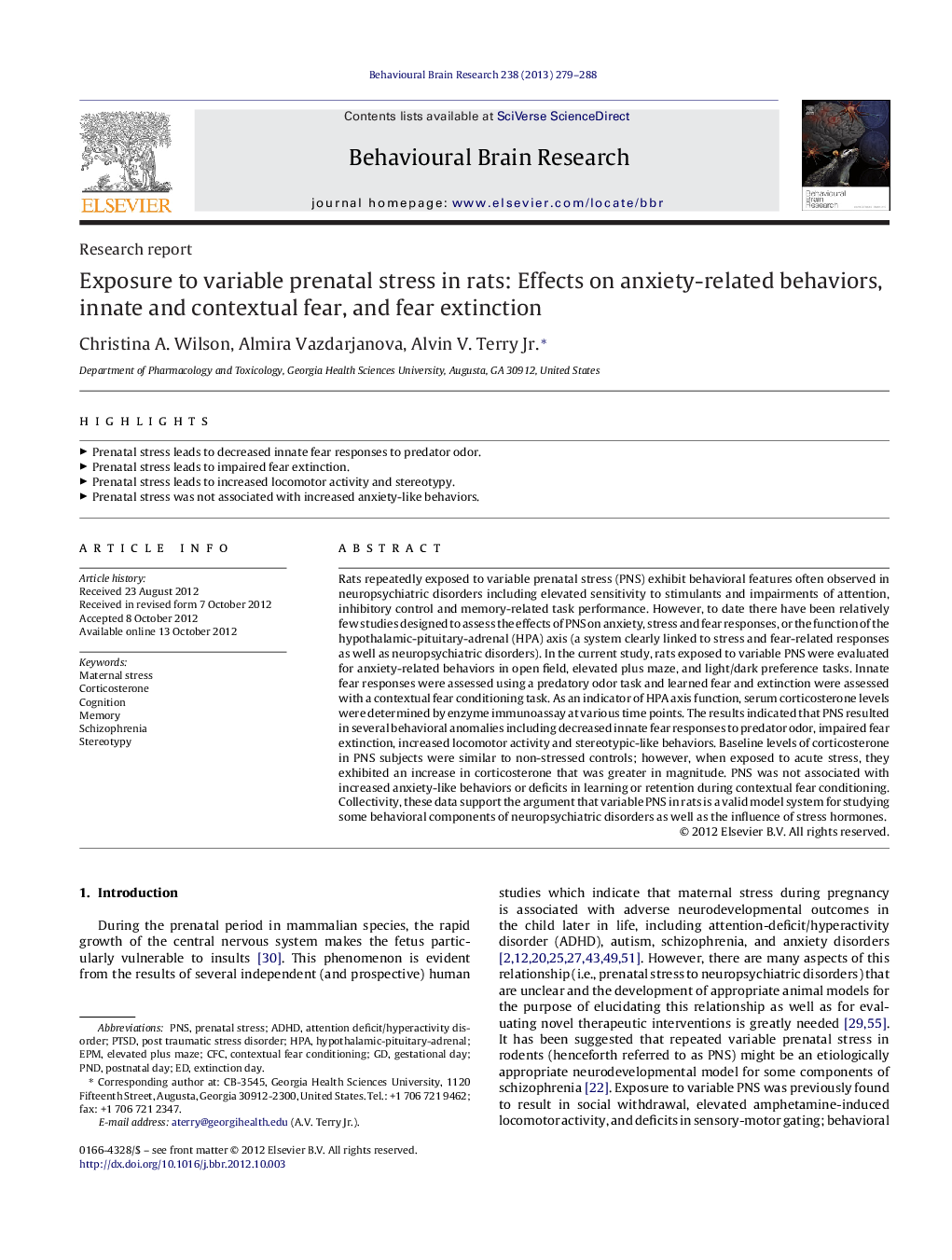| Article ID | Journal | Published Year | Pages | File Type |
|---|---|---|---|---|
| 4312930 | Behavioural Brain Research | 2013 | 10 Pages |
Rats repeatedly exposed to variable prenatal stress (PNS) exhibit behavioral features often observed in neuropsychiatric disorders including elevated sensitivity to stimulants and impairments of attention, inhibitory control and memory-related task performance. However, to date there have been relatively few studies designed to assess the effects of PNS on anxiety, stress and fear responses, or the function of the hypothalamic-pituitary-adrenal (HPA) axis (a system clearly linked to stress and fear-related responses as well as neuropsychiatric disorders). In the current study, rats exposed to variable PNS were evaluated for anxiety-related behaviors in open field, elevated plus maze, and light/dark preference tasks. Innate fear responses were assessed using a predatory odor task and learned fear and extinction were assessed with a contextual fear conditioning task. As an indicator of HPA axis function, serum corticosterone levels were determined by enzyme immunoassay at various time points. The results indicated that PNS resulted in several behavioral anomalies including decreased innate fear responses to predator odor, impaired fear extinction, increased locomotor activity and stereotypic-like behaviors. Baseline levels of corticosterone in PNS subjects were similar to non-stressed controls; however, when exposed to acute stress, they exhibited an increase in corticosterone that was greater in magnitude. PNS was not associated with increased anxiety-like behaviors or deficits in learning or retention during contextual fear conditioning. Collectivity, these data support the argument that variable PNS in rats is a valid model system for studying some behavioral components of neuropsychiatric disorders as well as the influence of stress hormones.
► Prenatal stress leads to decreased innate fear responses to predator odor. ► Prenatal stress leads to impaired fear extinction. ► Prenatal stress leads to increased locomotor activity and stereotypy. ► Prenatal stress was not associated with increased anxiety-like behaviors.
